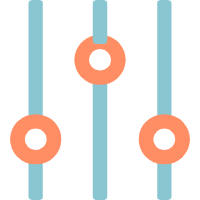A Chinese patent medicine’s long-term efficacy on non-dialysis patients with CKD stages 3–5: a retrospective cohort study
 【Abstract】
Background: Chinese patent medicine is commonly used in China as an important treatment mechanism to thwart the progression of chronic kidney disease (CKD) stages 3–5, among which Niaoduqing granules are a representative Chinese patent medicine; however, its long-term efficacy on CKD prognosis remains unclear.
Methods: Patients were grouped according to Niaoduqing granule prescription duration (non-Niaoduqing granule (non-NDQ) group vs Niaoduqing granule (NDQ) group). Serum creatinine (SCr) variation was compared using a generalized linear mixed model (GLMM). Multivariate Cox regression models were constructed, adjusting for confounding factors, to explore the risk of composite outcomes (receiving renal replacement therapy (RRT) or having an estimated glomerular filtration rate (eGFR)<5 mL/min/1.73 m2, ≥50% decline in the eGFR from the baseline, and doubling of SCr) in individuals consuming Niaoduqing granules.
Results: A total of 1,271 patients were included, with a median follow-up duration of 29.71 (12.10, 56.07) months. The mean SCr Z-scores for the non-NDQ group and NDQ group were −0.175 and 0.153, respectively, at baseline (p = 0.015). The coefficients of the NDQ group from visit 1 to visit 5 were −0.207 (95% CI: −0.346, −0.068, p = 0.004), −0.214 (95% CI: 0.389, −0.039, p = 0.017), −0.324 (95% CI: 0.538, −0.109, p = 0.003), −0.502 (95% CI: 0.761, −0.243, p = 0.000), and −0.252 (95% CI: 0.569, 0.065, p = 0.119), respectively. The survival probability was significantly higher in the NDQ group (p = 0.0039). Taking Niaoduqing granules was a significant protective factor for thwarting disease progression (model 1: HR 0.654 (95% CI 0.489–0.875, p = 0.004); model 2: HR 0.646 (95% CI 0.476, 0.877, p = 0.005); and model 3: HR 0.602 (95% CI 0.442, 0.820, p = 0.001)).
Conclusion: The long-term use of Niaoduqing granules improved SCr variation and lowered the risk of CKD progression by 39.8%.
【Abstract】
Background: Chinese patent medicine is commonly used in China as an important treatment mechanism to thwart the progression of chronic kidney disease (CKD) stages 3–5, among which Niaoduqing granules are a representative Chinese patent medicine; however, its long-term efficacy on CKD prognosis remains unclear.
Methods: Patients were grouped according to Niaoduqing granule prescription duration (non-Niaoduqing granule (non-NDQ) group vs Niaoduqing granule (NDQ) group). Serum creatinine (SCr) variation was compared using a generalized linear mixed model (GLMM). Multivariate Cox regression models were constructed, adjusting for confounding factors, to explore the risk of composite outcomes (receiving renal replacement therapy (RRT) or having an estimated glomerular filtration rate (eGFR)<5 mL/min/1.73 m2, ≥50% decline in the eGFR from the baseline, and doubling of SCr) in individuals consuming Niaoduqing granules.
Results: A total of 1,271 patients were included, with a median follow-up duration of 29.71 (12.10, 56.07) months. The mean SCr Z-scores for the non-NDQ group and NDQ group were −0.175 and 0.153, respectively, at baseline (p = 0.015). The coefficients of the NDQ group from visit 1 to visit 5 were −0.207 (95% CI: −0.346, −0.068, p = 0.004), −0.214 (95% CI: 0.389, −0.039, p = 0.017), −0.324 (95% CI: 0.538, −0.109, p = 0.003), −0.502 (95% CI: 0.761, −0.243, p = 0.000), and −0.252 (95% CI: 0.569, 0.065, p = 0.119), respectively. The survival probability was significantly higher in the NDQ group (p = 0.0039). Taking Niaoduqing granules was a significant protective factor for thwarting disease progression (model 1: HR 0.654 (95% CI 0.489–0.875, p = 0.004); model 2: HR 0.646 (95% CI 0.476, 0.877, p = 0.005); and model 3: HR 0.602 (95% CI 0.442, 0.820, p = 0.001)).
Conclusion: The long-term use of Niaoduqing granules improved SCr variation and lowered the risk of CKD progression by 39.8%.
 【Author】
Chen, Hui-Fen, Lin, Yu-Jie, Han, Yan, Zhang, Xian-Long, Wang, Ruo-Bing, Chen, Jun-Hui, Pi, Ying, Fu, Li-Zhe, Tang, Fang, Jie, Xi-Na, Tang, Xiao-Na, Liu, Xu-Sheng, Wu, Yi-Fan
【Author】
Chen, Hui-Fen, Lin, Yu-Jie, Han, Yan, Zhang, Xian-Long, Wang, Ruo-Bing, Chen, Jun-Hui, Pi, Ying, Fu, Li-Zhe, Tang, Fang, Jie, Xi-Na, Tang, Xiao-Na, Liu, Xu-Sheng, Wu, Yi-Fan
 【Journal】
Frontiers in Pharmacology(IF:3.8) Time:2024-04-26
【Journal】
Frontiers in Pharmacology(IF:3.8) Time:2024-04-26




